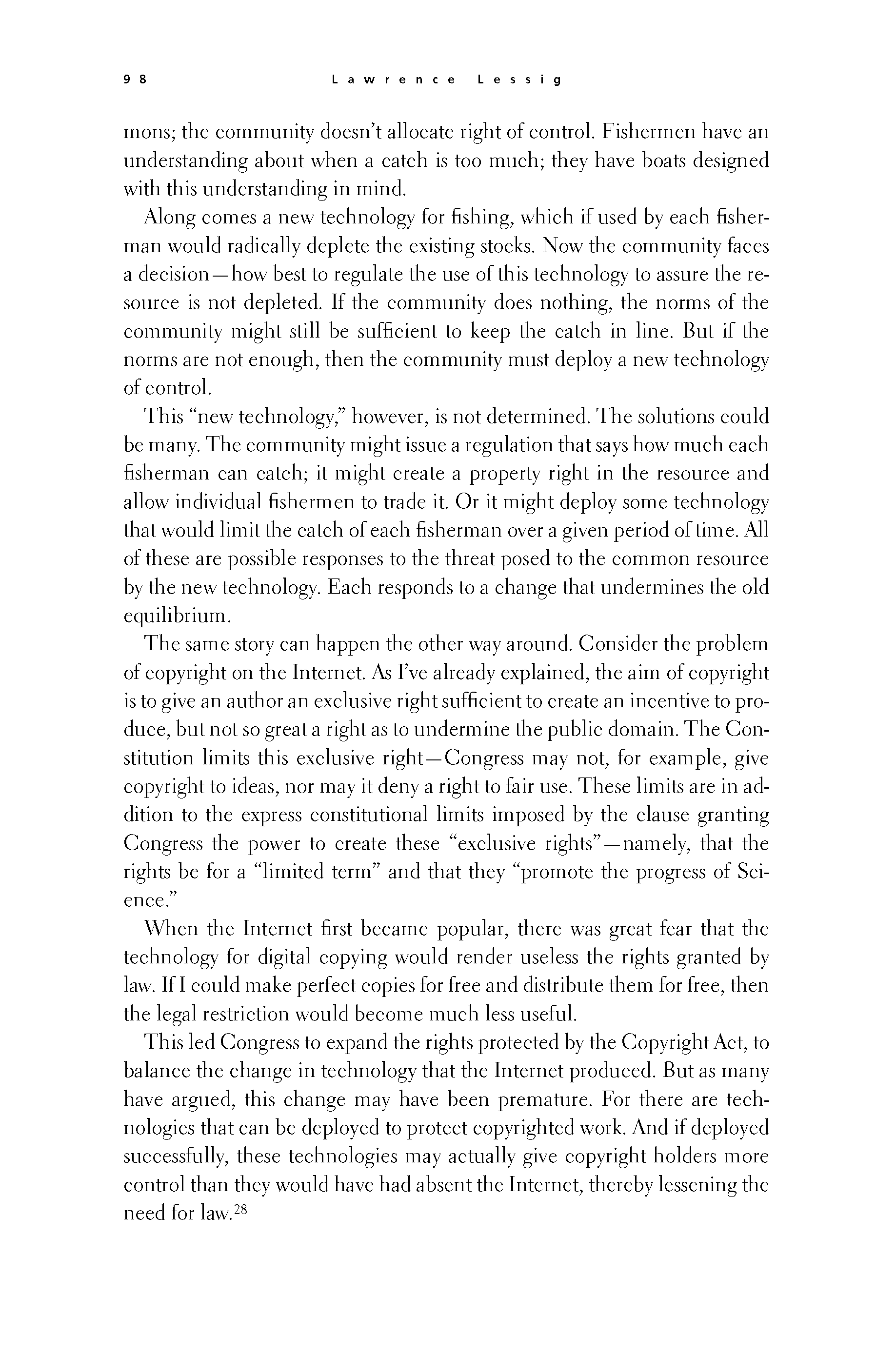 p097 _
-chap- _
toc-1 _
p098w _
toc-2 _
+chap+ _
p099
p097 _
-chap- _
toc-1 _
p098w _
toc-2 _
+chap+ _
p099
mons; the community doesn't allocate right of control. Fishermen have an
understanding about when a catch is too much; they have boats designed
with this understanding in mind.
Along comes a new technology for fishing, which if used by each fisher-
man would radically deplete the existing stocks. Now the community faces
a decision -- how best to regulate the use of this technology to assure the re-
source is not depleted. If the community does nothing, the norms of the
community might still be sufficient to keep the catch in line. But if the
norms are not enough, then the community must deploy a new technology
of control.
This "new technology," however, is not determined. The solutions could
be many. The community might issue a regulation that says how much each
fisherman can catch; it might create a property right in the resource and
allow individual fishermen to trade it. Or it might deploy some technology
that would limit the catch of each fisherman over a given period of time. All
of these are possible responses to the threat posed to the common resource
by the new technology. Each responds to a change that undermines the old
equilibrium.
The same story can happen the other way around. Consider the problem
of copyright on the Internet. As I've already explained, the aim of copyright
is to give an author an exclusive right sufficient to create an incentive to pro-
duce, but not so great a right as to undermine the public domain. The Con-
stitution limits this exclusive right -- Congress may not, for example, give
copyright to ideas, nor may it deny a right to fair use. These limits are in ad-
dition to the express constitutional limits imposed by the clause granting
Congress the power to create these "exclusive rights" -- namely, that the
rights be for a "limited term" and that they "promote the progress of Sci-
ence."
When the Internet first became popular, there was great fear that the
technology for digital copying would render useless the rights granted by
law. If I could make perfect copies for free and distribute them for free, then
the legal restriction would become much less useful.
This led Congress to expand the rights protected by the Copyright Act, to
balance the change in technology that the Internet produced. But as many
have argued, this change may have been premature. For there are tech-
nologies that can be deployed to protect copyrighted work. And if deployed
successfully, these technologies may actually give copyright holders more
control than they would have had absent the Internet, thereby lessening the
need for law.[6-28]
[[98]]
p097 _
-chap- _
toc-1 _
p098w _
toc-2 _
+chap+ _
p099